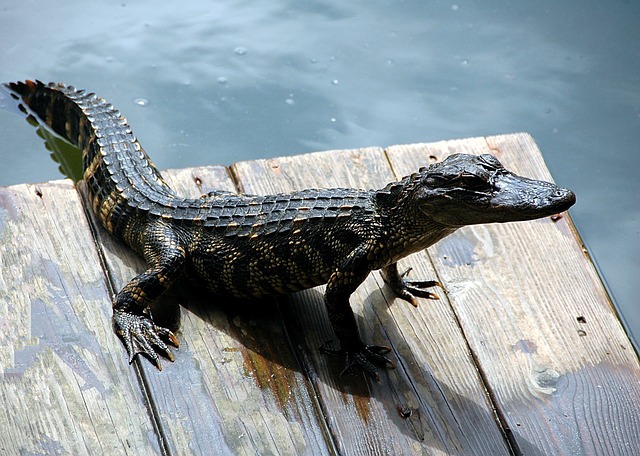Alligators are one of the most feared animals in the world. Their razor-sharp teeth and powerful jaws are a force to be reckoned with. But can alligators only hunt in water? Let’s find out.
Can alligators only hunt in water?
Alligators are large reptiles that are native to the southeastern United States. They are excellent swimmers and are often found near ponds, lakes, and other bodies of water.
However, contrary to popular belief, alligators can also hunt on land.
They are fast runners and can travel over short distances very quickly. In addition, they have a powerful tail that they can use to knock their prey off balance.
Alligators typically only hunt on land if they are trying to surprise their prey or if the water is too shallow for them to be able to swim effectively.
Nevertheless, they can hunt both in water and on land, making them one of the most dangerous predators in the southeastern United States.
On Land
Alligators are expert predators. They can hunt on land or in water, whichever is most advantageous for them at the time.
When hunting on land, they will often lie in wait for their prey to come close before attacking. However, they are just as likely to go after their prey head-on if they think they can take it down.
Alligators are also very fast over short distances, so their prey doesn’t always have a chance to escape.
In Water
In the water, alligators will often lurk beneath the surface, waiting for an unsuspecting animal to come swimming by.
When they strike, they will latch onto their prey with their powerful jaws and drag it under the water to drown it.
Alligators are also known to eat carrion (dead animals), so they are not above scavenging if there is an easy meal.
Can Alligators eat underwater?
Alligators are well-adapted to a life spent primarily on water. They have a streamlined body shape that helps them to swim quickly and efficiently, and their webbed feet act as paddles.
Alligators can also hold their breath for extended periods, allowing them to spend hours submerged.
However, because alligators are comfortable in the water does not mean they can eat underwater. To eat, an alligator must first surface and take a breath.
They then return to the bottom and open their mouths wide, using their tongues to draw in prey. As a result, alligators usually only hunt underwater if they can surprise their prey.
If an alligator is swimming after its prey, it will need to surface periodically to take a breath.
Conclusion
Alligators are fierce predators that can hunt on land or in water, whichever is most advantageous for them at the time. They are fast and agile, with powerful jaws that can crush their prey. If you’re ever unlucky enough to come face-to-face with an alligator, remember that you’re not necessarily safe just because you’re out of the water.




